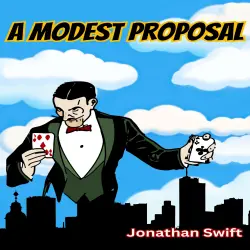
The Jungle Book
Rudyard Kipling
From the publisher
The Jungle Book by Rudyard Kipling - (1894) is a collection of stories by the English author Rudyard Kipling. Most of the characters are animals such as Shere Khan the tiger and Baloo the bear, though a principal character is the boy or "man-cub" Mowgli, who is raised in the jungle by wolves. The stories are set in a forest in India; one place mentioned repeatedly is "Seonee" (Seoni), in the central state of Madhya Pradesh.
A major theme in the book is abandonment followed by fostering, as in the life of Mowgli, echoing Kipling's own childhood. The theme is echoed in the triumph of protagonists including Rikki-Tikki-Tavi and The White Seal over their enemies, as well as Mowgli's. Another important theme is of law and freedom; the stories are not about animal behaviour, still less about the Darwinian struggle for survival, but about human archetypes in animal form. They teach respect for authority, obedience, and knowing one's place in society with "the law of the jungle", but the stories also illustrate the freedom to move between different worlds, such as when Mowgli moves between the jungle and the village. Critics have also noted the essential wildness and lawless energies in the stories, reflecting the irresponsible side of human nature.
Book
The stories in The Jungle Book were inspired in part by the ancient Indian fable texts such as the Panchatantra and the Jataka tales.[7] For example, an older moral-filled mongoose and snake version of the "Rikki-Tikki-Tavi" story by Kipling is found in Book 5 of Panchatantra.[8] In a letter to the American author Edward Everett Hale, Kipling wrote:
The idea of beast-tales seems to me new in that it is a most ancient and long forgotten idea. The really fascinating tales are those that the Bodhisat tells of his previous incarnations ending always with the beautiful moral. Most of the native hunters in India today think pretty much along the lines of an animal's brain and I have "cribbed" freely from their tales. -_Rudyard Kipling
In a letter written and signed by Kipling in or around 1895, states Alison Flood in The Guardian, Kipling confesses to borrowing ideas and stories in the Jungle Book: "I am afraid that all that code in its outlines has been manufactured to meet 'the necessities of the case': though a little of it is bodily taken from (Southern) Esquimaux rules for the division of spoils," Kipling wrote in the letter. "In fact, it is extremely possible that I have helped myself promiscuously but at present cannot remember from whose stories I have stolen.
A major theme in the book is abandonment followed by fostering, as in the life of Mowgli, echoing Kipling's own childhood. The theme is echoed in the triumph of protagonists including Rikki-Tikki-Tavi and The White Seal over their enemies, as well as Mowgli's. Another important theme is of law and freedom; the stories are not about animal behaviour, still less about the Darwinian struggle for survival, but about human archetypes in animal form. They teach respect for authority, obedience, and knowing one's place in society with "the law of the jungle", but the stories also illustrate the freedom to move between different worlds, such as when Mowgli moves between the jungle and the village. Critics have also noted the essential wildness and lawless energies in the stories, reflecting the irresponsible side of human nature.
Book
The stories in The Jungle Book were inspired in part by the ancient Indian fable texts such as the Panchatantra and the Jataka tales.[7] For example, an older moral-filled mongoose and snake version of the "Rikki-Tikki-Tavi" story by Kipling is found in Book 5 of Panchatantra.[8] In a letter to the American author Edward Everett Hale, Kipling wrote:
The idea of beast-tales seems to me new in that it is a most ancient and long forgotten idea. The really fascinating tales are those that the Bodhisat tells of his previous incarnations ending always with the beautiful moral. Most of the native hunters in India today think pretty much along the lines of an animal's brain and I have "cribbed" freely from their tales. -_Rudyard Kipling
In a letter written and signed by Kipling in or around 1895, states Alison Flood in The Guardian, Kipling confesses to borrowing ideas and stories in the Jungle Book: "I am afraid that all that code in its outlines has been manufactured to meet 'the necessities of the case': though a little of it is bodily taken from (Southern) Esquimaux rules for the division of spoils," Kipling wrote in the letter. "In fact, it is extremely possible that I have helped myself promiscuously but at present cannot remember from whose stories I have stolen.








